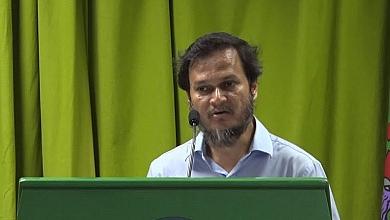
BCAD’s response to the SRO 15 is “Stay at Home”, to all construction workers
BCAD Executive met by teleconference on 3rd April 2020 to deliberate on the Government’s consideration of construction as an essential service, as obtained in SRO 15 of 2020, and to review this new situation as it will impact and potentially affect the local construction sector within the circumstances of the COVID19 pandemic, and the sector’s collateral impact on the wider private sector and the public as a whole.
The Meeting expressed support for activities and actions which are aimed at curtailing the spread of the COVID19 epidemic in Dominica. That BCAD Executive supports the efforts of the Government of Dominica through the principal agency of the Ministry of Health and in general, supports the provisions in the SRO 15 which seek to encourage persons to stay home and save lives.
However, the Meeting had serious concerns with some of the provisions of the SRO 15 and its development, as it relates to the consideration of Construction as an essential service:
- Public Information and Consultation.
- Lack of Forewarning: The Meeting expressed concern, as was expressed in its reaction of 23rd March 2020, that the State has failed to publish a plan as to what is to be expected at each level of the COVID19 epidemic. Hence, both the pronouncements of 22nd March 2019 and that of the 1st April 2020 provided no forewarning or time to wind down activities, which would have enabled contractors to do a shutdown of non-essential or non-critical work properly.
- Absence of Consultation with the Local Sector: The meeting expressed surprised that the local construction sector was not consulted, and certainly the executive of BCAD had no input in the SRO which pronounced that construction projects are to be considered as essential services and ought to continue as normal in this COVIFD19 pandemic.
- Overall responsibility of Limiting Spread of COVIOD19: The Meeting agreed that every contractor, and every employee in the construction sector, has a personal and collective responsibility to limit the spread of COIVID19, and therefore should not engage in work or other activity which has the potential to undermine the efforts of others, including the State. Hence, the meeting found that the present pronouncement of the SRO at section 7cannot be supported as:
- it is impractical to engage in construction site activities and expect that workmen will continually be able to maintain a 2 m(6 ft 8”) distance between them and work efficiently,
- given, that construction workers, on many existing projects, come from all over the island, it is, therefore, impractical to expect public transport to be readily available to carry workers to site if they are to comply with the requirement to operate at 25% capacity (1 per row) for the same fare,
- each exposure of a construction worker on a site or during the commute exposes his/her whole household to the possibility of infection with COIVID19.
- Productivity and Cost.
- The Meeting found that the Contractor will likely be operating inefficiently, with less than ideal staffing, and at low productivity and increased cost for work which has already be priced under a contract, given the limitations provided under the curfew and SRO 15 Clause 7 and 12. It was cited that
- it would be unlikely to have a full workday if key workmen have to commute from remote locations,
- some workmen will not be available on account of either fear of contracting the disease, or having to stay home with minors, or having taken a proactive stance about limiting the spread of the disease, and
- In addition to the new direct cost of the extra PPE required, these may not be readily available, and therefore require not only extra procurement cost but also, may require extra supervisory cost in order to ensure their utilisation.
- To mitigate against (a) (ii) above, the possibility of extra transportation cost, it is likely that the Contractor would have to contribute to commuting
- That it is an extra cost to the State and diverts resources from other more critical aspects of managing COVID19 if police officers or other State officials have to divert resources to ensure that construction sites comply with the requirements of SRO 15.
- The Meeting found that the Contractor will likely be operating inefficiently, with less than ideal staffing, and at low productivity and increased cost for work which has already be priced under a contract, given the limitations provided under the curfew and SRO 15 Clause 7 and 12. It was cited that
- Health and Safety and Legal Framework: The meeting noted that Contractors as employers are still responsible for the health and safety of employees on the construction site. Therefore, knowingly engaging them and exposing them and their families to COVID19, either on the site or during commute to or from the site, places employees in a compromised health and safety situation. Further, that any incident of infection, or suspected infection, of an employee on-site, will likely result in the closing down of the site as all employees are likely to be quarantined.
- Duration and Implication of Consideration of Construction as an “Essential Service”: The Meeting expressed concern, that given that Construction was considered an essential service, the majority by volume of Government procured construction services were not made available to be undertaken by local contractors or construction workers. Further, it questioned whether this pronouncement would be permanent for all other disasters, or only this time.
This article is copyright © 2020 DOM767








